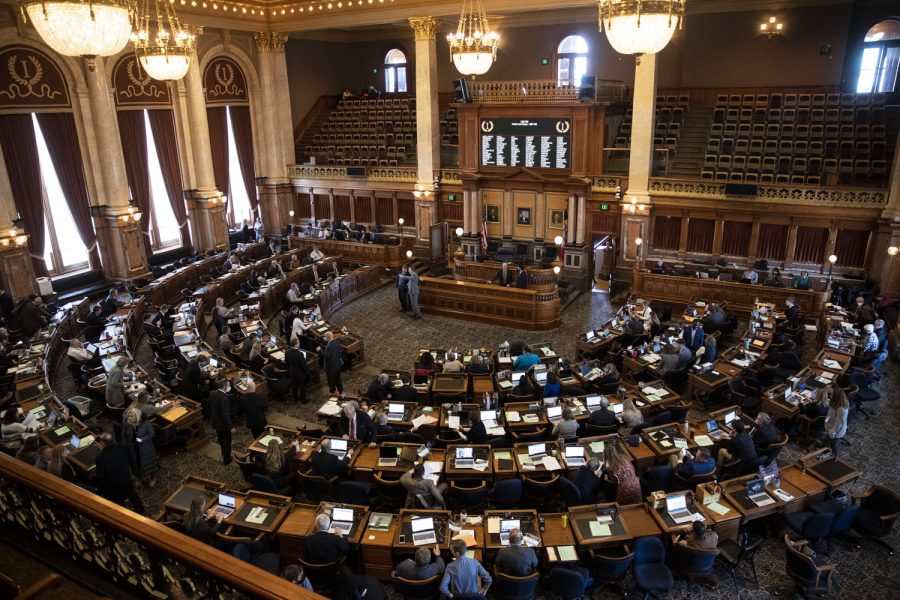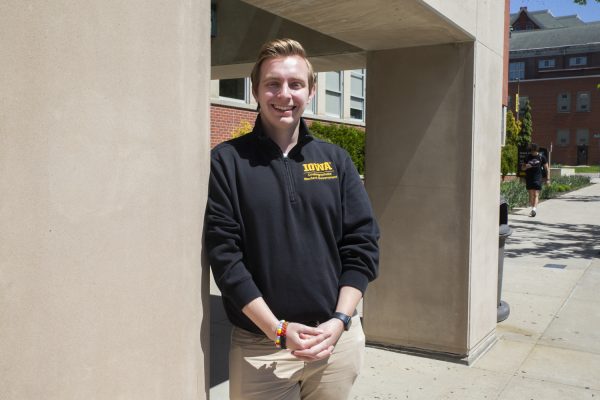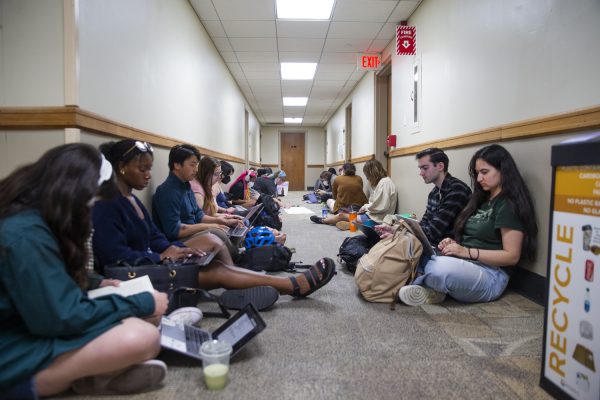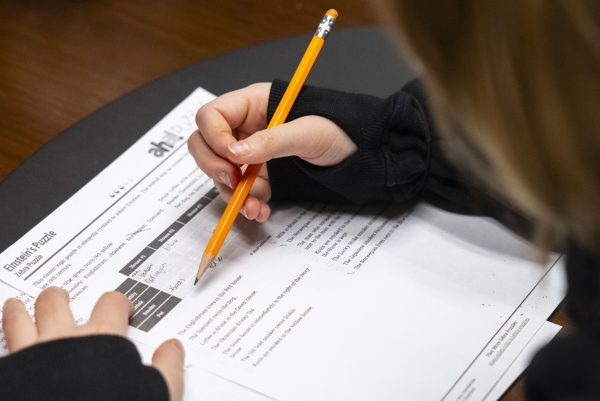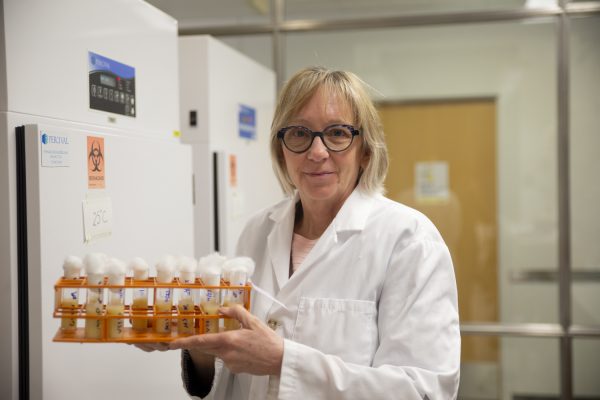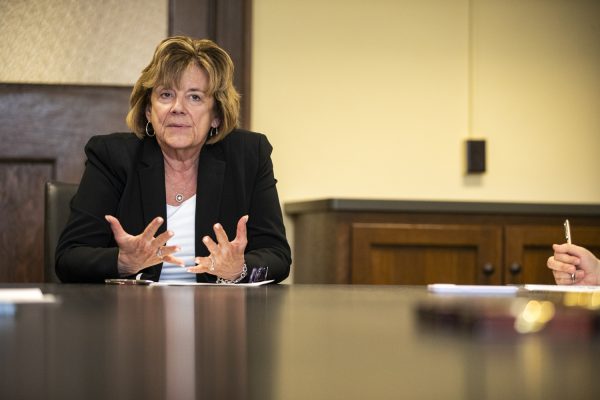Iowa House Republicans propose $12 million in scholarships for students in high demand fields, no direct regents funding increase
The grants, given by the College Student Aid Commission, are geared toward helping workforce shortages.
Members of the House congregate in the House Chamber after the opening of the 2022 Legislative Session at the Iowa State Capitol in Des Moines, Iowa, on Monday, Jan. 10, 2022. Both the House and Senate Republican leaders said the priority of this session is to return tax funds and address workforce conditions.
March 24, 2022
A proposed bill from the Iowa House Appropriations Subcommittee on Education would give the state Board of Regents institutions less money than the requested for the year, and instead create a new scholarship program aimed at Iowa workforce shortages.
Rather than providing an increase to the state Board of Regents’ universities, the lawmakers propose the dollars for the universities stay the same, adding $12 million for scholarships for students pursuing high-demand jobs.
The scholarships, which would be granted by the College Student Aid Commission, would come in the form of $5,000 grants per semester, going to third- and fourth-year students at Iowa’s three public universities.
“The Education budget bill also institutes a new approach to addressing Iowa’s need for highly skilled workers,” House Republicans said in a newsletter on Thursday. “…The grants would be paid out by semester, with the last payment coming after the student has worked for one year in the state of Iowa.”
Half of the money will go to people in teaching programs and the other half to students pursuing careers in high-demand jobs. Jobs are designated as high-demand by the Iowa Workforce Development.
“We’re short teachers and we have the need for high-demand jobs, different nurses and various things like that,” said Rep David Kerr, R-Morning Sun, who chairs the education appropriations subcommittee in the House. “…This is a grant program and it will help fund students and give them a chance to go into these programs.”
Kerr said the program exists in other states, and he thinks it will work well in Iowa.
The proposal falls far short of the $22 million the regents requested for the 2023 budget at the end of last year. In January, Gov. Kim Reynolds’ proposed budget suggested increasing the regents’ funding by $14.8 million, consistent with a 2.5 percent increase already passed for K-12 education.
“The Board is very appreciative of the legislative proposal to provide additional financial aid to Regent students,” Regents spokesperson Josh Lehman said. “And we look forward to continuing to work with the General Assembly to support Iowa’s public universities.”
University funding stays the same
The funding for the University of Iowa outlined in the bill is broken up into various categories and totals $228.7 million.
- The UI would receive $215,605,480 for salaries, support, maintenance, equipment, financial aid, and miscellaneous purposes.
- Regarding the UI’s Oakdale campus, the university would receive $2,103,819 for salaries, support, maintenance, and miscellaneous purposes.
- The State Hygienic Laboratory would receive $4,822,610 for salaries, support, maintenance, and miscellaneous purposes.
For the medical aspects of the UI, the bill also outlines the funding that would go toward the various programs:
- Regarding the family practice program, the university would receive $2.22 million for salaries, support, and qualified families to carry out the family practice residency education program.
- The UI would receive $634,502 specialized child health care services, including childhood cancer diagnostic and treatment network programs, rural comprehensive care for hemophilia patients, and the Iowa high-risk infant follow-up program, including salaries and support.
- The statewide cancer registry would receive $143,410
- The UI would receive $53,427 for distribution to the Iowa consortium for substance abuse research and evaluation
- The center for biocatalysis would receive $696,342
- The primary health care initiative in the UI College of Medicine would receive $624,374, with $254,889 being allocated to the department of family practice at the UI College of Medicine for family practice faculty and support staff.
- The birth defects registry would receive $36,839
The bill finishes by outlining the miscellaneous programs and centers that would also receive funding, as they have in the past, with this bill:
- The Larned A. Waterman Iowa nonprofit resource center would receive $156,389
- The Iowa online advanced placement academy science, technology, engineering, and mathematics initiative would receive $463,616
- The Iowa flood center, for use by the university’s college of engineering, would receive $1.15 million
The total amount of funding for Iowa State University comes to $220.8 million while the amount for the University of Northern Iowa accumulates to $105.2 million



